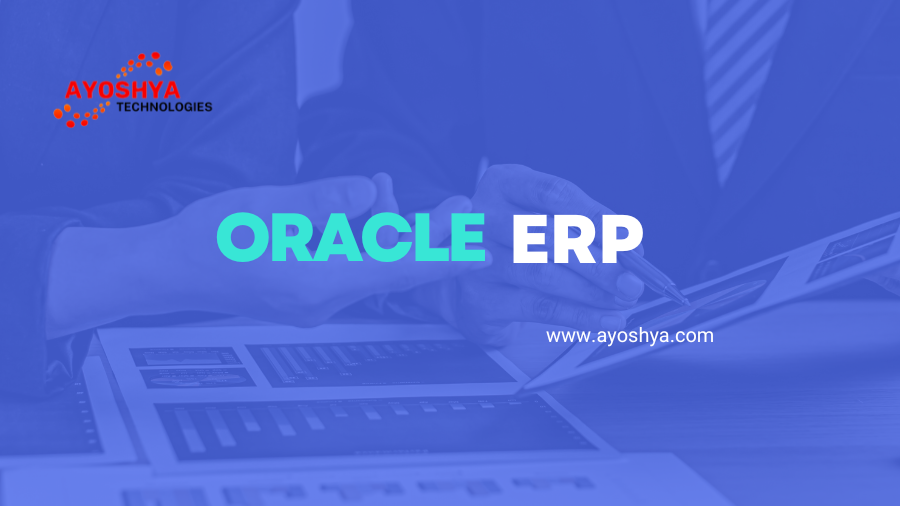Potential of Oracle ERP: Streamlining Business Operations
I. Introduction
A. Definition of Oracle ERP
Oracle ERP, or Enterprise Resource Planning, is a comprehensive suite of integrated business applications designed to streamline and automate various processes within an organization. From finance and supply chain to human resources and project management, ERP offers a unified platform for efficient business operations.
B. The Evolution of Enterprise Resource Planning
The concept of ERP has evolved over the years, moving from standalone solutions to integrated systems that provide real-time insights and collaboration across different departments. ERP stands at the forefront of this evolution, offering cutting-edge solutions for modern businesses.
II. Key Modules in Oracle ERP
A. Finance Management
Oracle ERP’s finance module empowers businesses with robust tools for financial planning, budgeting, and management. It ensures accuracy in financial reporting and compliance with regulatory standards.
B. Supply Chain Management
Efficient supply chain management is crucial for businesses, and ERP excels in this area. It optimizes procurement, inventory management, and logistics, ensuring a streamlined supply chain.
C. Human Capital Management
Managing human resources is simplified with Oracle ERP’s human capital management module. From recruitment to performance management, it covers the entire employee lifecycle.
D. Project Management
For businesses involved in projects, Oracle ERP’s project management module offers tools for planning, execution, and monitoring. It enhances collaboration among team members and ensures project success.
III. Advantages of Oracle ERP
A. Enhanced Efficiency
It eliminates manual and repetitive tasks, automating processes and enhancing overall operational efficiency. This allows employees to focus on more strategic tasks, boosting productivity.
B. Real-time Analytics
Access to real-time data and analytics is a game-changer for decision-makers. ERP provides insights that aid in informed decision-making, contributing to the success of the organization.
C. Scalability
Whether a business is a small startup or a large enterprise, ERP is scalable to meet evolving needs. It grows with the business, ensuring continuous support.
D. Improved Decision-Making
With accurate and up-to-date information at their fingertips, decision-makers can make informed choices. Oracle ERP’s analytics and reporting capabilities contribute to smarter decision-making.
IV. Real-world Implementations
A. Case Studies Across Industries
From manufacturing to healthcare, Oracle ERP has proven its effectiveness across diverse industries. Case studies showcase how businesses have overcome challenges and achieved success with ERP.
B. Success Stories of Oracle ERP Adoption
Real-world success stories highlight the positive impact of ERP on businesses, from cost savings to improved customer satisfaction.
V. Customization and Integration
A. Tailoring Oracle ERP to Business Needs
One size doesn’t fit all, and understands that. Businesses can customize the system to align with their specific processes and requirements.
B. Seamless Integration with Existing Systems
ERP seamlessly integrates with existing systems, ensuring a smooth transition without disruptions to ongoing operations.
VI. Oracle ERP vs. Competitors
A. Comparative Analysis
A comparison with other ERP solutions in the market showcases the unique features and advantages that set Oracle ERP apart.
B. Unique Features Setting Oracle ERP Apart
Oracle ERP’s strengths, such as its extensive module offerings, user-friendly interface, and scalability, make it a preferred choice among competitors.
VII. Implementation Best Practices
A. Comprehensive Training Programs
Effective training programs are essential for successful ERP implementation. Oracle provides comprehensive training to ensure that users are proficient in utilizing the system.
B. Phased Rollouts for Smooth Integration
Phased rollouts, starting with specific modules or departments, contribute to a smoother integration process, minimizing disruptions to daily operations.
VIII. User Experience
A. Intuitive Interface
ERP boasts an intuitive and user-friendly interface, reducing the learning curve for users. This ensures widespread adoption across different levels of an organization.
B. User Testimonials on Oracle ERP Experience
Users share their positive experiences with ERP, emphasizing the system’s ease of use and the positive impact on their daily workflows.
IX. Future Trends in Oracle ERP
A. Integration of Artificial Intelligence
The future of ERP includes the integration of artificial intelligence, enhancing predictive analytics, automation, and overall system intelligence.
B. Cloud-based Oracle ERP Solutions
As the trend towards cloud computing continues, Oracle ERP is expected to offer more robust cloud-based solutions, providing flexibility and accessibility to businesses.
X. Conclusion
A. Recap of Oracle ERP Benefits
In conclusion, It emerges as a powerful tool for businesses, offering efficiency, scalability, and adaptability to diverse industry needs.
B. Encouragement for Businesses to Embrace Oracle ERP
The article encourages businesses, regardless of their size or industry, to consider ERP for optimizing their operations and navigating the complexities of the modern business landscape.
XI. FAQs
A. How does Oracle ERP enhance financial management?
It enhances financial management through robust tools for budgeting, reporting, and compliance, ensuring accuracy and transparency.
B. Can it adapt to the specific needs of different industries?
Yes, It is designed to be adaptable, with customization options to meet the specific needs and processes of different industries.
C. Is training provided for employees during Oracle implementation?
Yes, Oracle provides comprehensive training programs to ensure that employees are well-equipped to use the ERP system effectively.
D. How does Oracle ERP contribute to better decision-making?
It contributes to better decision-making by providing real-time analytics and insights, empowering decision-makers with accurate information.
E. Is Oracle suitable for small businesses?
Yes, It is scalable and suitable for businesses of all sizes, including small businesses looking to streamline their operations.
You may be interested in:
SAP & Oracle Consulting: A Winning Combination



